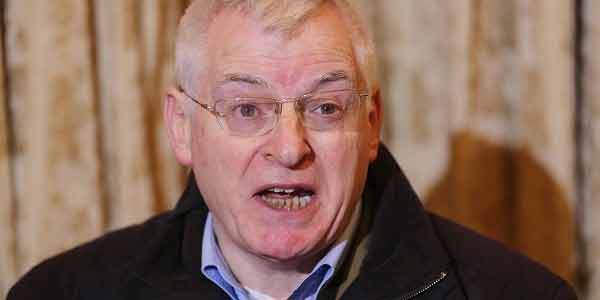An Oireachtas banking inquiry was hamstrung by the “absurd” demands of current legislation, a Socialist Party TD has warned.
Joe Higgins, who indicated on Sunday that he could not endorse the inquiry’s contentious draft report, also said there should never be another probe under the 2013 Act.
In a letter to chairman Ciaran Lynch, he said: “While a major problem for the Joint Committee was that the decision to hold an inquiry was made four or five years too late, the most serious problem was, and is, that the demands of the Houses of the Oireachtas (Inquiries, Privileges and Procedures) Act 2013 were revealed to be more and more absurd as the inquiry progressed.

“There should never again be an inquiry under this Act and I don’t believe there will be.”
On Sunday Sinn Fein’s Pearse Doherty announced he could not sign off the draft report because it did not answer the big questions.
He argued that people had a right to expect that a report would identify those responsible for Ireland’s bankruptcy.
Although the process of calling key figures to give evidence in public was worthwhile, Mr Higgins said he would also be dissenting from the inquiry’s findings.
He added: “Members of the Joint Committee will dissect the causes of the property bubble, the subsequent crisis and economic crash with the ideological tools that inform their judgment and will propose their findings and recommendations accordingly.
“In that sense it is inevitable that, in my view, since a majority of the members are ideologically committed to the present system and are members of the political parties which legislate to accommodate the system, they will arrive at an analysis and conclusions that are fundamentally different to mine.
“I do believe, however, that there is both documentary and oral evidence that was given to the inquiry itself which validate my general analysis and conclusions. In this respect I made some submissions at an earlier stage in the process which weren’t reflected in the broad thrust of the draft report. However I am in a minority position and as far as the report is concerned the majority will decide the tenor of the report.”
The five million euro (£3.6 million) inquiry sat for several months and heard 413 hours of evidence and received 42,000 documents in relation to the period leading up to and including the state’s financial collapse.
It can make limited findings against individuals but, with commitments to publish before the Dail is dissolved ahead of the general election, it last week agreed to extend its deadline to January 27.
It is understood the planned executive summary has been dropped and will be replaced by a “chairman’s summary” which will act as an introduction to the 400-page report.
Banking inquiry 'hamstrung by absurd legislation'
